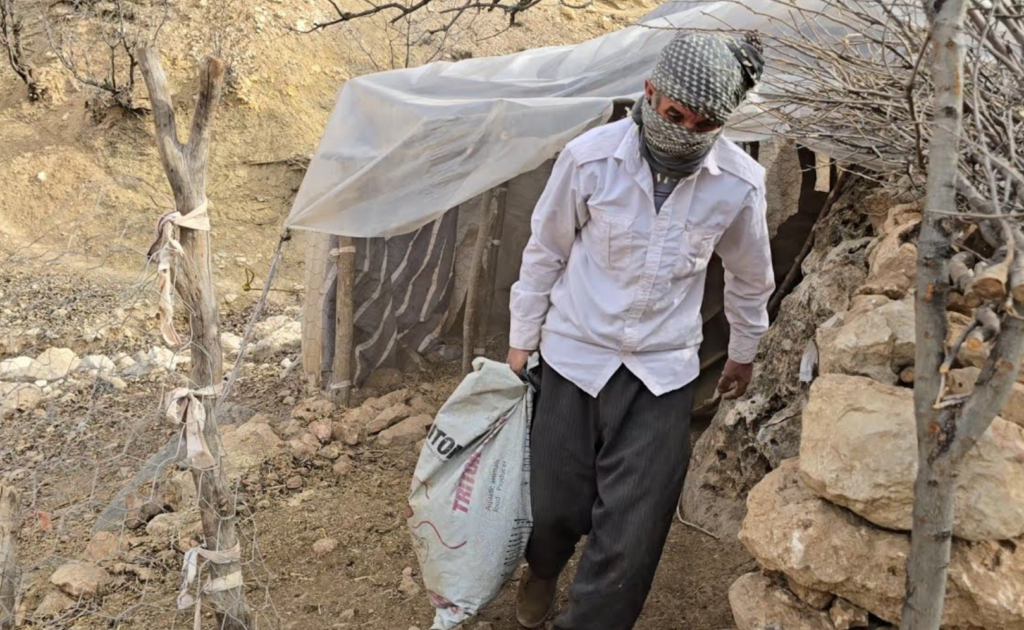For Jahangir, a seasoned nomad living in the rugged mountains of Iran, caring for his animals was not just a duty—it was a way of life. The health and well-being of his flock determined his family’s survival, providing them with milk, wool, and trade goods. As winter approached, Jahangir knew it was time to clean and reinforce the animal shelter, a vital refuge that protected his sheep and goats from the harsh mountain climate.
The Importance of a Clean Shelter
The shelter, located in a remote valley nestled between towering peaks, had been used for generations. Built from stones, mud, and wooden beams, it provided warmth and safety during the freezing nights. However, months of use had left it cluttered with manure, old straw, and dust, making it necessary to clean and prepare it before the arrival of the harsh winter.
A dirty shelter could lead to disease, attracting insects and weakening the animals. Jahangir, knowing this well, woke up before dawn, determined to restore the shelter to a proper condition.
Gathering Tools and Preparing for the Work
Jahangir packed a wooden rake, a metal shovel, and woven baskets to collect waste. His son, Reza, eager to help, joined him on this task. Together, they mounted their horses and made their way toward the shelter, a journey that took them through winding mountain paths, across small rivers, and past golden autumn trees shedding their leaves.
Upon arriving, Jahangir observed the state of the shelter. Dust and old bedding straw lay thick on the ground, while the stone walls had become damp from the recent rain. He knew it would be a long day of hard work.
The Cleaning Process

Jahangir and Reza began by removing the old straw bedding, shoveling it into baskets and carrying it outside. The work was exhausting, as each load was heavy and required multiple trips. The dust filled the air, making them cough, but they pushed on, determined to provide a cleaner, healthier space for the animals.
Once the floor was cleared, Jahangir used his rake to level the dirt, ensuring that moisture wouldn’t accumulate and create a breeding ground for disease. He also checked for cracks in the walls, reinforcing them with a mixture of mud and dried grass to strengthen the structure before winter storms arrived.
Adding Fresh Bedding and Ventilation
With the shelter now clean, Jahangir and Reza laid down fresh, dry straw, spreading it evenly across the floor to provide insulation. He also adjusted the wooden roof beams, making small openings to allow for better air circulation, ensuring that the animals wouldn’t suffer from damp conditions.
Finally, Jahangir carried in fresh water buckets and checked the feeding troughs, making sure everything was in place for the coming months.
A Job Well Done
As the sun began to set, Jahangir wiped the sweat from his forehead and looked at the shelter with pride. His animals would now have a warm, clean, and safe place to rest during the cold nights ahead.
Reza, though tired, smiled at his father. “Will we do this again next year?” he asked.
Jahangir chuckled and patted his son’s back. “Yes, my son. Just as my father did before me, and his father before him. This is how we take care of our animals, and they take care of us in return.”
With their work done, father and son mounted their horses and rode back home, the glow of the setting sun casting long shadows across the mountains. Another day of hard work and tradition had strengthened the bond between man, animal, and nature—just as it had for generations before.
